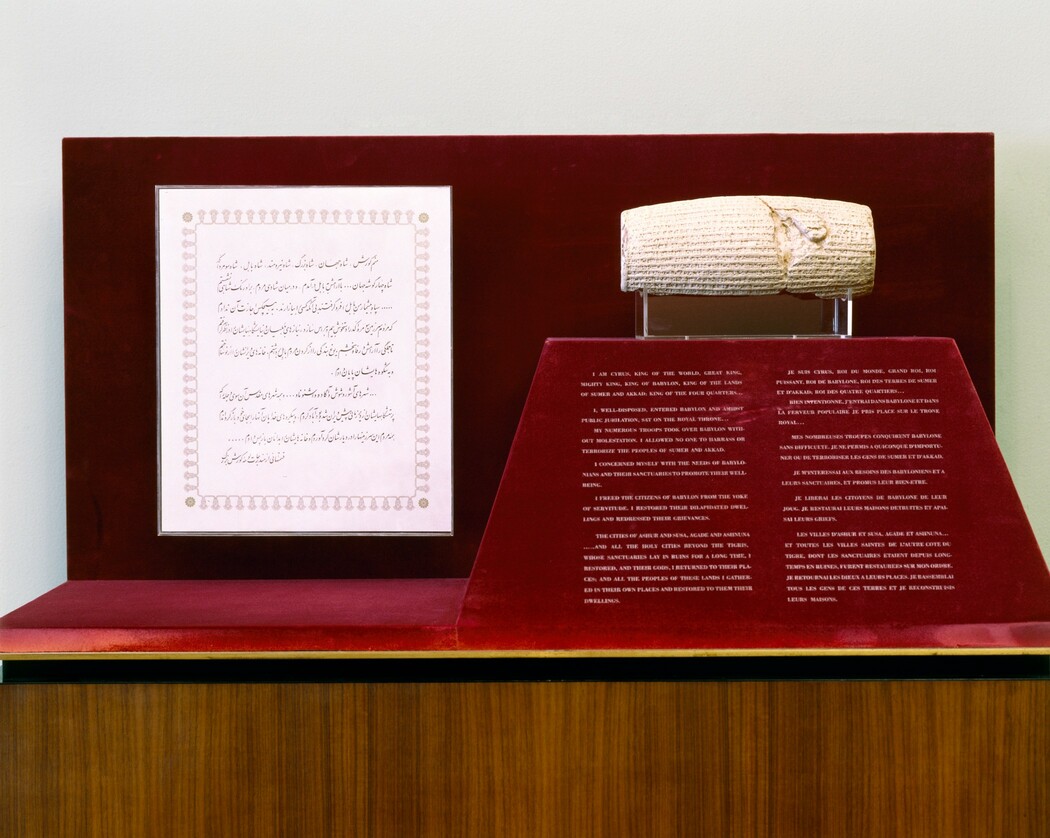
Replica of "Edict of Cyrus"
The “Edict of Cyrus” is an ancient declaration of human rights and this replica was made by the British Museum from the original in their collection. The original cylinder was found in March 1879, during excavations in Mesopotamia (modern-day Iraq) for the British Museum. It is an ancient clay cylinder and dated 539 BC. The case in which it is displayed was designed by the Metropolitan Museum of Art, New York, and contains English and French translations of the ancient Persian text as well as the replica itself.
In September 2010, the National Museum of Iran opened the Cyrus Cylinder exhibition and the British Museum loaned their Cyrus Cylinder for the exhibit. The cylinder texts indicate that everyone is entitled to freedom and choice and that all individuals should respect one another. The cylinder also suggests resisting oppression, defending the oppressed, respecting human dignity and recognizes human rights. The exhibition promoted the idea that the Iranian nation has always supported justice, devotion, and human values since the earliest times.
On 14 October 1971, the Iranian Shah’s sister, Princess Ashraf Pahiava, presented to the United Nations Secretary-General U Thant a replica of the cylinder on behalf of the country of Iran. She said, “the heritage of the Cyrus was the heritage of human understanding, tolerance, courage, compassion and above all, human liberty”.
The Secretary-General linked the gift with the efforts of the United Nations General Assembly with “the questions of Respect for Human Rights in Armed conflict.

